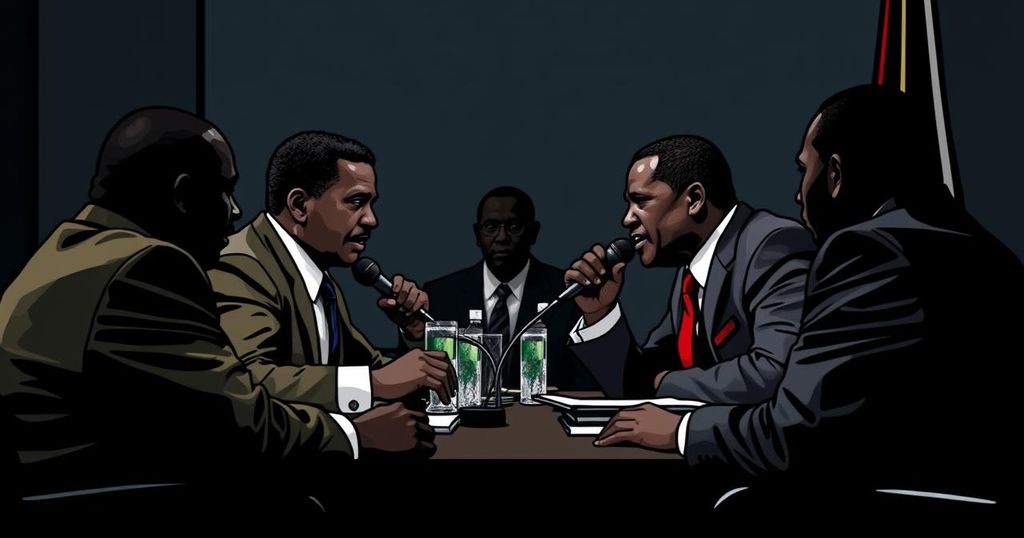Tensions within Haiti’s ruling presidential council have erupted over Foreign Minister Dominique Dupuy’s stance on the Dominican Republic’s deportations of Haitians, leading to demands for her dismissal by council members. Prime Minister Garry Conille has refused to comply, citing constitutional authority, while Dupuy maintains her commitment to serving Haiti in the midst of a challenging political environment.
Haiti is currently embroiled in an internal conflict regarding its foreign minister, Dominique Dupuy, due to her perceived harsh stance against the Dominican Republic’s mass deportations of Haitians. Tensions have escalated within the ruling presidential council, leading council members to call for her dismissal, which Prime Minister Garry Conille has staunchly resisted. During a recent council meeting, members expressed their lack of trust in Dupuy and subsequently passed a resolution demanding her removal. However, Prime Minister Conille, referencing the separation of powers as outlined in Haiti’s 1987 Constitution, asserted his authority by refusing to acquiesce to their request. He praised Dupuy’s contributions to Haiti, including international engagements to secure resources and rally support against the Dominican Republic’s deportation policies. In contrasting approaches to foreign policy, Dupuy and council president Leslie Voltaire have released conflicting communications regarding the ongoing crises, revealing further divisiveness within the government. Dupuy, despite facing pressure to resign, remains committed to her role and open to dialogue, emphasizing the need for cooperative efforts for the benefit of the Haitian people. The situation remains fraught, with unresolved questions about the true authority for appointing or dismissing ministers amidst Haiti’s ongoing political instability, particularly in the absence of a functioning parliament.
The political landscape in Haiti is marked by instability and tensions between various governmental entities, especially in light of ongoing humanitarian crises. The contentious relationship with the Dominican Republic, particularly regarding the deportation of Haitian migrants, has intensified political disagreements within Haiti’s Transitional Presidential Council. This internal conflict over leadership roles, specifically concerning the foreign minister, raises questions about the division of powers and the capacity for effective governance.
In conclusion, the ongoing standoff between Prime Minister Garry Conille and the Transitional Presidential Council over the status of Foreign Minister Dominique Dupuy underscores the complexities of Haiti’s current political climate. The situation reflects broader issues of authority, accountability, and the pressing need for cohesive foreign policy in response to humanitarian challenges. As both sides remain firm in their positions, the future of Haiti’s governance remains uncertain, necessitating a careful balance between internal dynamics and external diplomatic efforts.
Original Source: www.miamiherald.com






